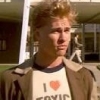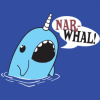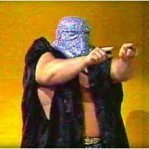Leaderboard
Popular Content
Showing content with the highest reputation on 05/11/19 in all areas
-
3 pointsI think the thing that I found the most perplexing was Mr. Wasey’s motivation. Like I got why Mr. Burns/Farraday wanted him. And I got why Ms. Tatlock, as a missionary, was willing to put up with his nonsense. I even got why he needed their help to get back to LA. What I couldn’t understand was how at some point this nipple obsessed, neon tie salesman became the point man in the investigation. Once his character cleans up, everyone just sort of steps aside and let’s this crazy vagrant lead the investigation. He’s not a detective! He’s just some dude that just happens to look like some other guy. That’s it. Yet the movie tries to portray him as some kind of street savvy gumshoe. He’s not. We’re not even talking about a Mr Allnut situation from The African Queen where he’s some guy who has been around long enough that he’s become an expert at navigating the local climate. He sells nudie ties. That’s what he does. Nothing about him makes him particularly well-suited to negotiate with corrupt cops, drug dealers, or mobsters. What would have made more sense is if it were explained that he was some kind of disgraced, but talented, detective that had fled to Shanghai to escape his troubles. Everything could pretty much stay the same, except his character’s motivation for sticking around and wanting to figure out what’s going on would make way more sense. The movie would then become a journey of redemption and self-discovery rather than just about some skeevy, pornographic cravat salesmen who somehow knows how to rig the trigger of a Shanghai Surprise.
-
3 pointsWas anyone else bothered by the name China Doll? I feel like China is the one place where that name definitely doesn't work. Nobody was calling Mei Gan China Hands. If I understand the plot of this movie (15% chance of that, and only after reading a plot synopsis) Belloq hired Sean Penn for this mission solely because he looked like China Doll's ex-lover. Belloq wanted the jewels in addition to the opium that he had all along and thought the way to get them was through China Doll's heart. So what led him to that conclusion? During their pillow talk after the 11 major and 9 minor positions China Doll said something like "You're alright but my ex-lover was really something and if I ever found anyone that even looked like him I'd do anything. Here let me show you a picture of him."???
-
2 pointsI listened to the episode for Cool As Ice. He says he was 16 when Ice Ice Baby came out. I don't know if that was just poor memory or lying, but he was 21 when it came out and 22 when it blew up.
-
1 pointSo I just stumbled on an old Japan Time article from 2007 about how the Japanese government secretly sold opium during the war and the occupation of China. The whole thing is fascinating as all get out so I'm just copying it verbatim if that's ok. If it's too long let me know! "A Japanese narcotics firm in wartime occupied China sold enough opium to nearly match the annual budget of Tokyo’s puppet government in Nanjing, according to an internal company document recently discovered by The Japan Times. The 21-page document, found in an archive at the National Diet Library of Tokyo, showed opium dealer Hung Chi Shan Tang (or Hong Ji Shan Tang as it would now be spelled) sold as much as 300 million yuan worth of opium in 1941, when the annual budget of the Nanjing Government was 370 million yuan. Although not widely known at home, Japan’s opium trade in China was considered an essential financial resource for the Imperial Japanese Army and Japan’s puppet governments. An outline of the opium dealings first came to light in the mid-1980s, when historians uncovered several secret government documents. Many key details, however, have remained a mystery. The document, titled “Outline of Hung Chi Shan Tang,” reveals the history of the Shanghai-based company, headed by Hajime Satomi, that was believed to be the dominant opium trader in Japanese-controlled central China, including Shanghai, until early 1944. The document breaks down the company’s operating costs, details the wholesale price structure of opium, the firm’s assets and debts as well as how the rapid inflation of local currencies affected its narcotics trade. Hung Chi Shan Tang was technically a private company with an exclusive license issued by the Japanese puppet government established in Nanjing in 1938. “The discovery of this document is really significant. It has been known that Hajime Satomi headed Hung Chi Shan Tang and generated huge profits, but concrete details have been elusive,” said Masanao Kurahashi, a leading expert on Japan’s opium policy in China and a professor at Aichi Prefectural University. The document shows Hung Chi Shan Tang sold 6 million “liang,” or 222 tons, of opium in 1941 to local-level Chinese dealers. One of the reasons Hung Chi Shan Tang was established in 1939 was “to put the opium business under Japan’s wartime control,” Satomi wrote in the document, whose first page is stamped “secret.” According to historians, profits from the opium trade bankrolled the Imperial army’s unofficial spying activities not covered by the official military budget. Later, revenue from the opium monopoly became a major financial source for the puppet governments of Inner Mongolia, Nanjing and Manchukuo, which was set up in 1932 in Manchuria. The Inner Mongolia puppet government, set up in 1937, systematically grew poppies to raise revenue, and its largest opium dealer was Hung Chi Shan Tang. In 1942, its opium revenues accounted for as much as 28 percent of its initial budget. “Since (opium) was the only product with which the Mongolian Government can earn foreign currency, we have made our best efforts to expand sales channels,” Satomi stated in the document. It was discovered among 545 archived documents once in the possession of former Finance Ministry official Hideoto Mori, a close friend of Satomi. The opium document has been open to public viewing at the National Diet Library, but experts didn’t know it was there. In the typewritten document, Satomi also reported that in addition to Mongolian opium, his company imported the product from Iran as well as from Rehe, northeastern China, where the Manchukuo regime allowed farmers to grow poppies under the state opium monopoly. Of 6 million liang in opium that Hung Chi Shan Tang sold in 1941, Mongolian opium accounted for 4 million liang and Iranian opium for 1.6 million liang, according to the document. The dealer charged a commission of 8 percent in selling Mongolian opium to local dealers, in addition to transport fees, insurance fees, tax and other miscellaneous expenses, according to the cost breakdown detailed in the document. “(Opium) from Mongolia and Manchukuo are all transported by air, and transport payment to Chinese Aviation Airway reached ¥3 million in ‘gunpyo’ in the last fiscal year,” Satomi said. Gunpyo was the military scrip Japan issued in occupied China. To whom Satomi wrote the document has not been confirmed, but professor Junichi Chiba at Tokyo Metropolitan University, an expert on prewar corporate accounting rules who examined the financial data in the document, said it appears to be a report from Satomi to the China Affairs Board (Ko-a-in), Japan’s wartime ministry on China affairs. In fact, a memorandum dated April 10, 1941, and addressed to Genshichi Oikawa, the China Affairs Board chief, was attached to the document, and Satomi confirmed in the memorandum that his opium trader borrowed operating funds from Tokyo. The attached memo pins down the direct connection of the Imperial government in Tokyo and Satomi’s opium organization, said Motohiro Kobayashi, an associate professor at Niigata University of International and Information Studies and an expert on Japan’s opium trade in China. In that memo, Satomi pledged to “manage and invest (the loaned money) for the sake of future benefits of the Imperial government.” “Now it’s clear that Hung Chi Shan Tang was an organization that solely worked for the sake of the Japanese government in Tokyo,” Kobayashi said. Oikawa of the China Affairs Board, who was summoned to testify in the postwar International Military Tribunal for the Far East in Tokyo, denied any connection with Satomi’s opium business. “During my time in office, I had no association whatever with him,” Oikawa told the tribunal. But the memorandum shows Oikawa’s testimony was “a complete lie,” said writer Shinichi Sano, who in 2005 published the book “The Opium King,” which traces the life of Satomi, a former newspaper reporter whose Chinese alias was Li Ming. “The document is undeniable evidence (linking Satomi to Oikawa),” Sano said. The document also reveals another apparent lie in Satomi’s court testimony. For the Tokyo war crimes court, Satomi was arrested as a Class-A war criminal suspect but, for unknown reasons, was not charged. He was later released and died in 1965 of cardiac failure at age 69. During the Tokyo tribunal, Satomi was summoned as a witness. He admitted having opium dealings but denied Hung Chi Shan Tang dealt with morphine or heroin, derivatives of opium that were widely traded by Japanese nationals in China. Morphine and heroin are far more toxic and addictive than opium. But the latest finding shows Hung Chi Shan Tang had 999 kg of morphine made in Manchukuo, in addition to 277 kg of cocaine processed by the Japanese colonial government in Taiwan as of June 1, 1942. The narcotics were originally prepared for the Southeast Asian market, but Hung Chin Shan Tang held onto the stocks after the Pearl Harbor attack in December 1941, Satomi reported in the 1942 paper. Japanese historical documents have shown Tokyo at that time considered expanding its opium business from China to Southeast Asia, where Chinese residents consumed a considerable amount of narcotics. The document for the first time reveals Hung Chin Shan Tang’s drug stocks prepared for the market outside China. Satomi also reported that his company could immediately sell off the morphine and cocaine on the Chinese market at street prices, which were twice the book value. “It is enough to guarantee that Hung Chi Shan Tang’s financial footing is extremely stable,” Satomi wrote." https://www.japantimes.co.jp/news/2007/08/30/national/japan-profited-as-opium-dealer-in-wartime-china/#.XNcUy98pC2c
-
1 pointSo at the start they say one of these opium flowers is worth a grand. I think that this really weird for two British men to be using U.S currency but whatever I'll go with it. If we go by inflation, and what Google tells me, that means that in today's money that one of those is worth $17,945.21 (I personally love the 21 cents. ). That's a shit ton of money. Especially if we keep in mind this is 1937/38. The tail end of the Great Depression. The U.K was only slowly starting to recover and the U.S was still going through it.
-
1 pointMany won't try now out of fear of injuring their throwing arm and while spitballers have been out of the game for a while now there are still stories of pitchers going full Eddie Harris and covering their balls in various items to give them an edge, such as Mariners pitcher Yusei Kikuchi who was caught having put what appeared to be a whole container of pine tar on the brim of his hat at a recent game.
-
1 pointDuring the minisode, Paul said the was a Shanghai Surprise in the movie but not to look it up if you didn't know what that means. I did anyway and apparently it currently means when a man pretends to be a woman during sex. So, I spent the whole movie wondering if China Doll was going to reveal herself to be a man because I assumed Madonna wasn't going to play a trans character.
-
1 pointI think it's safe to say that we should add another item to the list of tropes of a bad movie, in having a couple in a movie together, because it never seems to work at best and is an utter disaster at worst, with rare exception. You have Getaway with Alec Baldwin and Kim Basinger, Ben Affleck and JLO in Gigli and Jersey Girl, Affleck and Jennifer Garner in Daredevil, By the Sea with Brad Pitt and Angelina Jolie, Kristen Bell and Dax Shephard in Hit and Run, and many more.
-
1 pointI apologize! I’m commenting as I’m listening when I probably shouldn’t be, but I have to comment on the “fish smell” thing because that bothered the fuck out of me at the time, but I eventually (I think) figured it out. After they are thrown into the oubliette of fish, they go to the baths where they can both get cleaned off. When they get out, Madonna complains that Penn still reeks. My initial response was that she should to, but what I failed to realize at the time was that she’s in new clothes provided by the baths, and he’s in the same clothes he was in when they were thrown in. Maybe the clothes provided to Madonna cost money and he just couldn’t afford them? Regardless, this is why when they return to Mr. Burns/Farraday, he makes a point to give Penn cash to “buy some new clothes.”
This leaderboard is set to Los Angeles/GMT-08:00
-
Newsletter





